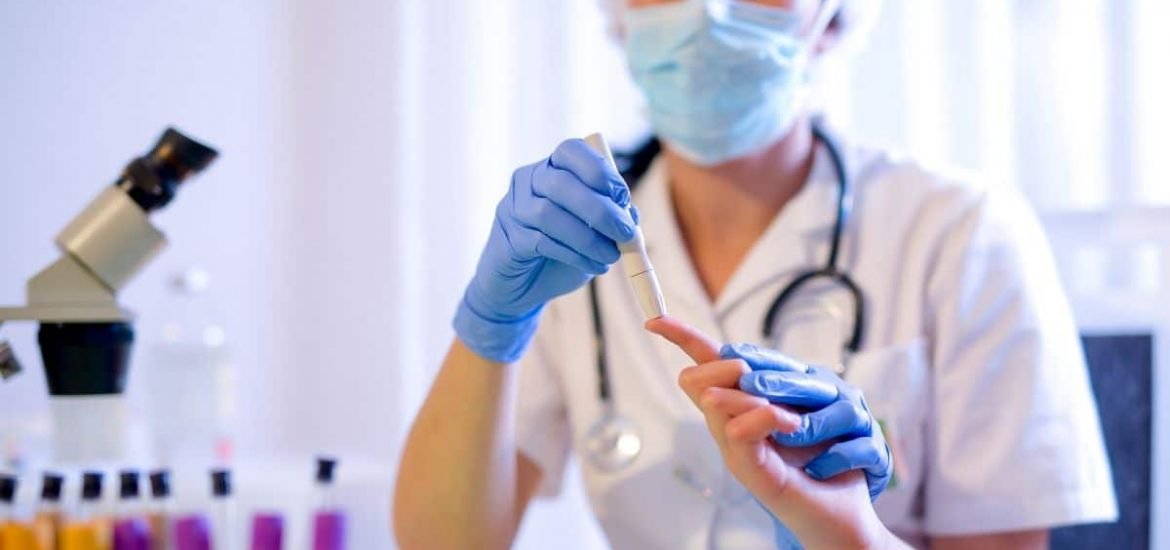
People with diabetes are known to be at increased risk of developing COVID-19 and those with the condition are more likely to die from the infection (1, 2). Now, a growing body of evidence suggests the novel coronavirus might trigger type 1 diabetes.
At present, the hypothesis is based on a number of anecdotal reports of a handful of people who have spontaneously developed diabetes following a COVID-19 infection. In one such case report in China, a previously healthy young man presented with new-onset, severe diabetes after contracting COVID-19 (3).
Other viral infections such as mumps, enterovirus infections, and the SARS coronavirus have long been suspected of enhancing or even eliciting diabetes symptoms. The viruses can disrupt the function of key cells involved in diabetes by either destroying the cells that control blood sugar levels or triggering an immune response.
In type 1 diabetes, the body’s immune system attacks insulin-producing β-cells, which control blood sugar levels in the blood. Once all the cells are gone, the body can no longer produce sufficient amounts of insulin to control blood glucose levels.
One recent study in Cell Stem Cell showed that the novel coronavirus can trigger the creation of proteins that cause the immune system to attack insulin-producing β-cells, leading to a chronic autoimmune response in pancreatic organoids – miniaturised lab-grown human organs (4).
Another study published last month in the Journal of Pathology showed that the coronavirus enters human cells via the ACE2 protein, which is commonly found on cells in organs involved in controlling blood sugar levels, further fueling suspicion (5).
Earlier in June, a group of leading diabetes researchers wrote a letter to the New England Journal of Medicine warning that COVID-19 not only poses an increased risk in people with diabetes but may actually cause diabetes in previously healthy patients (6). The group has now set up a global registry, a joint initiative of Kings College London and Monash University, to record COVID-19-related diabetes cases.
Some researchers are cautious about jumping to conclusions. Prof Naveed Sattar, a metabolic-disease researcher at the University of Glasgow told Nature: “We need to keep an eye on diabetes rates in those with prior COVID-19, and determine if rates go up over and above expected levels”.
Indeed, a lot of this is still conjecture. Nonetheless, a growing number of leading diabetes experts believe the coronavirus might not just be more deadly for those with pre-existing diabetes but may trigger diabetes in some people. The global registry will hopefully help researchers gather enough data to determine whether there is a direct link between COVID-19 and diabetes, which in itself is a growing pandemic.
(1) Docherty, A.B. et al. Features of 16,749 hospitalised UK patients with COVID-19 using the ISARIC WHO Clinical Characterisation Protocol. Preprint at medRxiv (2020). DOI: 10.1101/2020.04.23.20076042
(2) Zhu, L. et al. Association of Blood Glucose Control and Outcomes in Patients With COVID-19 and Pre-existing Type 2 Diabetes. Cell Metabolism (2020). DOI: 10.1016/j.cmet.2020.04.021
(3) Chee, Y.J., Ng, S.J.H., and Yeoha, E. Diabetic ketoacidosis precipitated by Covid-19 in a patient with newly diagnosed diabetes mellitus. Diabetes Research and Clinical Practice (2020). DOI: 10.1016/j.diabres.2020.108166
(4) Yang, L. et al. A Human Pluripotent Stem Cell-based Platform to Study SARS-CoV-2 Tropism and Model Virus Infection in Human Cells and Organoids. Cell Stem Cell (2020). DOI: 10.1016/j.stem.2020.06.015
(5) Hamming, I. et al. Tissue distribution of ACE2 protein, the functional receptor for SARS coronavirus. A first step in understanding SARS pathogenesis. The Journal of Pathology (2020). DOI: 10.1002/path.1570
(6) Rubino, F. et al. https://doi.org/10.1056/NEJMc2018688 (2020). New-Onset Diabetes in Covid-19. New England Journal of Medicine (2020). DOI: 10.1056/NEJMc2018688